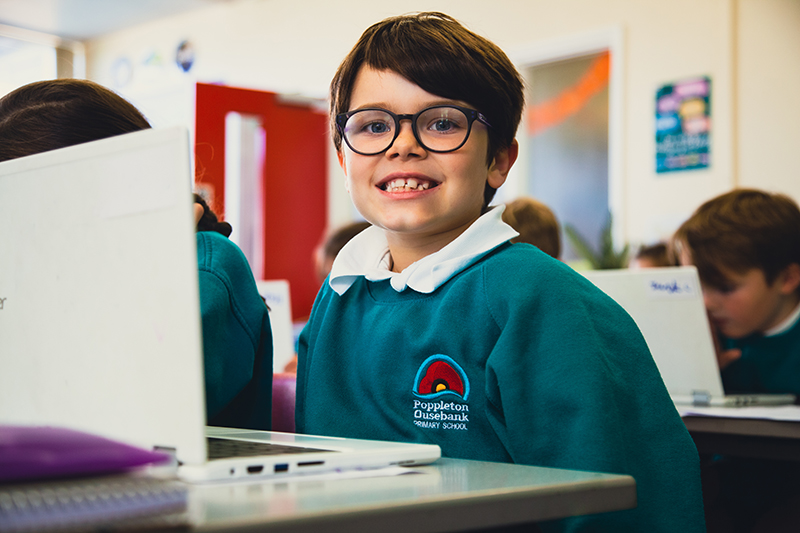Upper Poppleton
York YO26 6JT
Online Safety

A guide to Online Safety
At School
At Home
As a parent, you will know how important the internet is to children – they use it to learn, play and socialise. The technology that children use every day can seem a bit daunting and you might worry about the risks your child can face online – such as bullying, contact from strangers or the possibility of them seeing illegal or inappropriate content. If at any point you are concerned about your child online, please do not hesitate to ask the school for support. In addition to this, please see below for a list of useful resources that may help you protect your child when they are online:
What can I do to protect my child?
- Rule setting/agreement – what, who, how long, where
- Open discussion
- Monitoring
- Parental controls
It’s worth being aware that no parental controls or filtering options are 100% fool proof.
Useful links for children
- https://www.thinkuknow.co.uk/
- https://www.bbc.co.uk/cbbc/joinin/safer-net-day-tips?collection=stay-safe
- https://www.bbc.com/ownit
- https://www.childnet.com/young-people/4-11-year-olds/
- http://www.bbc.co.uk/guides/zs83tyc
- https://www.bbc.co.uk/newsround/44074704
- https://beinternetlegends.withgoogle.com/en_uk/
- https://www.saferinternet.org.uk/
Useful links for parents
- https://learning.nspcc.org.uk/research-resources/schools/e-safety-for-schools
- https://www.saferinternet.org.uk/advice-centre/parents-and-carers
- https://www.nspcc.org.uk/keeping-children-safe/online-safety/
- https://www.gov.uk/government/publications/child-safety-online-a-practical-guide-for-parents-and-carers/child-safety-online-a-practical-guide-for-parents-and-carers-whose-children-are-using-social-media

